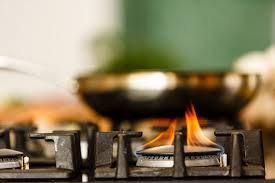Nairobi is one of the fastest-growing cities in Africa, with a population of over 5 million people. With increased urban migration and high birth rates, energy demand is increasing, posing a threat to the health, economic, and environmental aspects of the residents.
Traditional cooking methods; the use of charcoal, kerosene, and wood in open stoves, is the primary source of energy for most urban homes and the demand is expected to rise over the next few decades. While this may seem cost-effective in most cases, the long-term consequences are dire.
Forest resources are under a lot of stress as a result of the rising demand for wood energy. Women who cook, and young children are particularly at risk from indoor air pollution, which is thought to be responsible for more than 15,000 preventable deaths annually.
Household air pollution is associated with an increased incidence of COPD, lung cancer, and cataracts in adults. It can take several additional hours to prepare and cook food, even after the fuel has been acquired. If this burden could be lightened, women and girls may use that time for recreation, leisure, furthering their education, or earning money.
As household incomes rise and individuals improve economically, energy preferences change from biomass fuels like charcoal to modern greener alternatives such as LPG, kerosene and electricity. The predicted energy shift is however, delayed by a number of issues, and it may even be insufficient in the end, creating energy blends that contain charcoal.
Some of these issues are related to affordability; some of the households cannot afford cleaner alternatives. Cultural and behavioural issues: – People may find it hard to change from their old ways. Government policies: lack of incentives for clean cooking alternatives.
To address the challenges, there should be:
- Collaboration from different stakeholders to raise public awareness and provide education on the importance of clean cooking technologies.
- Incentives for clean stoves to encourage uptake among the residents.
- Access to finance and clean cooking investment options provided to low-income households.
In conclusion, the transition to clean cooking will enhance the county of Nairobi’s economic, health, and environmental conditions, resulting in empowered communities.
